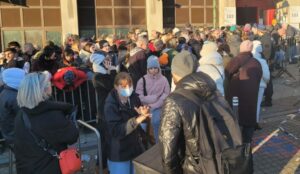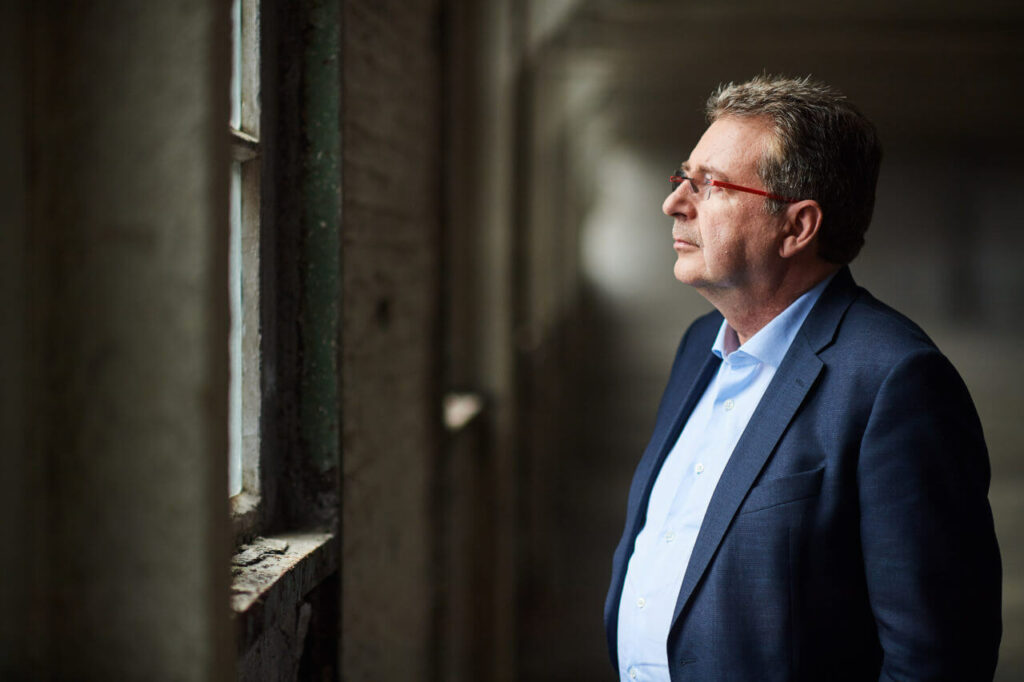Belgian politics is at first glance an indecipherable labyrinth of different levels of governments and laws. But it does not have to be this way! Check back in regularly with The Brussels Times as we try to shine some light on matters.
In an attempt to help the uninitiated navigate such a complex system, we will be speaking regularly with politicians from the regional, national and European level. They will give us a taste of what they do and how their small piece fits into the bigger jigsaw puzzle that is Belgium. If there is a particular topic you would like us to put to those in power, get in touch!
This week we caught up with Rudi Vervoort, the minister-president of the Brussels Capital Region, about the city's relationship with the EU, voting rights for non-Belgians and why housing is a major challenge in the capital.
How do you separate the city of Brussels from the Brussels region? To an outsider or the politically uninitiated it is often a confusing structure to understand.
We understand that it can be complicated for “outsiders”. Our country has a federal system with different regions, parliaments and governments. The minister-president of the Brussels Capital Region is clearly in charge of the entire Brussels region which consists of 19 municipalities. The main difference in that regard is the competences.
What is your view on voting rights for residents of Belgium vs citizens? Do you support the idea that residents should be able to vote in at least regional elections?
We are for voting rights for regional elections. However, as for the actual modalities – as of when, EU, non-EU or all citizens – we believe we should reflect and study the topic further.
Promoting the image of Brussels is one of your duties. How do you approach that task when for many non-Belgians, ‘Brussels’ is often synonymous with the EU? Is it sometimes difficult to extract the city and region from the EU’s shadow?
Brussels is the capital of 500 million Europeans and that has become an important part of our DNA. We are the most cosmopolitan region in Europe and the second most cosmopolitan region in the world. We bring together all the cultures of Europe and the world. We want to be the laboratory of this multicultural Europe, open to the world, where you can be who you are.
Europe is a unique opportunity for citizens of different cultures to meet and is the demonstration of living together. Brussels wants to be a symbol of this. A region where you become a citizen of Brussels from the first day of your arrival, where everyone will do what is necessary to make you feel at home, from the first day to the last, no matter how long your stay is, from a few hours to a lifetime.

The 'European quarter'
Has the pandemic made the issue of urban renewal in the region more complex or are people clearer now about how they see their region and city?
Like all metropoles, the Brussels-Capital Region is facing important changes, which have been disrupted by the two years of health crisis that we have just been through. We do not have the necessary hindsight to draw definitive conclusions, but it is already clear that the housing issue is undoubtedly one of the lessons of the health crisis: too many Brussels residents still live in poor quality housing that is poorly ventilated, poorly insulated, without access to an outdoor area or a workspace, and with rental and energy costs that are still too high.
Providing accessible, quality housing remains a major challenge. In this context, there is another question being debated: what should be the attitude of the public authorities to control building density?
The central districts of Brussels are reaching the limits of their 'densifiable' potential in certain places: we must reverse this where possible and concentrate our efforts where space still exists. In short, the issue of the city and its sustainable and resilient development has returned to the political agenda with greater prominence. I insist on the term 'sustainable', which contains environmental and social objectives.
I would not say that the pandemic has "made things more complex" per se, but it is clear that a tension has been exacerbated in the public debate between the objectives of producing affordable housing which are, in my view, unfairly put against the preservation of the environmental qualities of our city. It is our responsibility to demonstrate that these two objectives are two sides of the same coin.
Finally, I think that more than ever, the people of Brussels want to participate more in the design of the city, their city, of tomorrow. Citizen participation must become more professional, and this is the ambition that my government has set itself by creating a special department dedicated to this issue.
Millions of Ukrainian refugees are arriving in European countries due to Russia’s war. How is the Brussels region preparing to host its share of people in need? What steps have already been taken?
The Region has been mobilised since the first hours of the outbreak of war. Most of the emergency reception offered by the federal government comes from the Brussels effort, via the municipalities. Indeed, since the beginning of the crisis, it is exclusively in Brussels that Ukrainian refugees can register. The installation of the centre in Bordet, then its transfer to Heysel, and finally the opening of the crisis accommodation centres and the reception desk at the Gare du Midi, essentially mobilised the public services and organisations in Brussels.
In parallel to this emergency reception, the Region is preparing - still in close collaboration with the municipalities - the 2nd phase relating to the temporary reception of refugees. This is a real challenge for the Region, which is already experiencing pressure on the capacity of the rental market and which must find solutions to enable the reception and integration of nearly 20,000 refugees on its territory.

Ukrainian refugees in Brussels. Credit: Dylan Carter
Russia’s war has pushed energy prices to all-time highs. What can your government do at a regional level to help people deal with this extra financial burden?
At the regional level, it is not possible to take specific measures on energy prices. The regional government has therefore taken measures to enable households to meet their energy bills by reinforcing the means made available to the CPAS [Centre Public d'Aide Sociale] to support households. We have also automated access to the status of regional protected client, which opens access to the specific social rate, for those who did not already have it. Finally, we have provided a guaranteed supply by the distribution network operator to certain households.
The EU and International Energy Agency suggest that people turn down their thermostats by at least one degree to help save energy and reduce payments to Russia. Is there a role for regional governments like yours to convey that message more clearly to residents and citizens? A public awareness campaign, for example.
The Brussels Government has been running information campaigns on energy efficiency for many years, including the advice to turn down the thermostat, explaining that one degree less means 7% less consumption.
The Covid pandemic is easing but not over. During the last two years, do you feel like your government’s voice has been sufficiently heard in the wider Belgian decision-making process? Or could it have been better?
During the roughest times of the Covid pandemic the regional minister-presidents were part of the CODECO national platform led by the prime minister. We were in dialogue almost on a weekly basis to manage the situation and we were fighting an invisible “enemy”. My job was to take into consideration the specific situation of the Brussels Region and its citizens where, for example, not all citizens have access to a garden or have large housing. For me, it was important that the measures were just and fair towards the Brussels population. On the other hand we also gathered internally in Brussels with the 19 mayors through the CORES. This made it possible to quickly coordinate specific measures for our region. For example, we kept the mask obligation and were the first region to prohibit events with more than 1,000 attendants in closed spaces.

